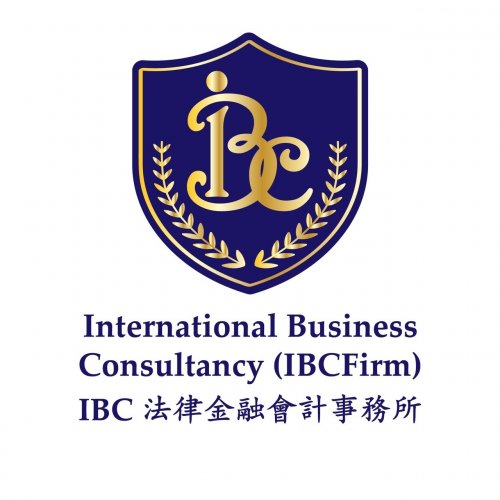Best Equity Capital Markets Lawyers in Thailand
Share your needs with us, get contacted by law firms.
Free. Takes 2 min.
Or refine your search by selecting a city:
List of the best lawyers in Thailand
Legal guides written by SIAM LEGAL INTERNATIONAL:
- Defamation Laws in Thailand: Criminal Charges and Civil Suits
- The State of Thailand’s Long-Term Resident (LTR) Visa Program in 2025
- The Penalties Of Not Filing Your Income Tax Return As A Foreigner In Thailand
About Equity Capital Markets Law in Thailand
Equity Capital Markets (ECM) law in Thailand covers the rules, regulations, and legal processes associated with raising capital through equity offerings. This typically involves companies issuing shares to the public or specific investors, listing on the Stock Exchange of Thailand (SET), conducting initial public offerings (IPOs), private placements, rights issues, and follow-on offerings. The landscape is regulated by Thai laws and overseen by key authorities to ensure fair and transparent capital raising, investor protection, and market integrity.
Why You May Need a Lawyer
Engaging in equity capital markets involves complex legal and regulatory matters. Here are some common situations where you may need legal assistance:
- Preparing for an IPO: Lawyers help navigate regulatory approvals, corporate governance requirements, and disclosure obligations.
- Planning fund-raising strategies: Legal advice is vital when structuring share offerings, private placements, and rights issues to comply with relevant regulations.
- Drafting documentation: ECM transactions require precise legal documents such as prospectuses, subscription agreements, and shareholder resolutions.
- Regulatory compliance: Ensuring all dealings meet the Securities and Exchange Act, the rules of the Securities and Exchange Commission (SEC) and SET requirements.
- Resolving disputes: Legal expertise is important when dealing with shareholder disputes or regulatory investigations.
- Cross-border transactions: Foreign investors or companies listing in Thailand face additional legal complexities that demand specialist advice.
Local Laws Overview
Thailand's ECM activities are governed by a robust legal framework that aims to protect investors and promote confident participation in the market. The key legal instruments and regulatory bodies include:
- Securities and Exchange Act B.E. 2535 (1992): This act sets out the foundation for securities offerings, disclosure obligations, and misconduct penalties.
- Public Limited Companies Act B.E. 2535 (1992): Contains requirements for companies conducting public offerings, including shareholder rights and board responsibilities.
- Securities and Exchange Commission (SEC): Regulates and supervises securities offerings, disclosures, and intermediaries such as underwriters and advisers.
- Stock Exchange of Thailand (SET): Establishes listing requirements, ongoing obligations for listed companies, and enforces disclosure standards.
- Foreign Business Act: Sets limits and procedures for foreign ownership in Thai listed companies.
- Anti-Money Laundering and Corporate Governance Regulations: Companies must comply with anti-corruption and good governance standards.
Compliance with these laws is necessary to achieve successful capital market transactions and avoid legal consequences.
Frequently Asked Questions
What is an Initial Public Offering (IPO) in Thailand?
An IPO is when a Thai company offers its shares to the public for the first time and lists on the SET. It allows companies to raise capital and enhances their public profile.
Who regulates equity capital market transactions in Thailand?
The Securities and Exchange Commission (SEC) regulates primary offerings and ongoing disclosures, while the Stock Exchange of Thailand (SET) oversees listed companies.
Can foreign companies list on the Thai stock exchange?
Yes, foreign companies can list on the SET under certain conditions and must comply with additional regulatory requirements set by the SEC and SET.
What are the ongoing legal obligations for a listed company?
Listed companies must adhere to continuous disclosure rules, maintain proper corporate governance, file financial reports, and report significant events to the SET and SEC.
Is legal due diligence necessary before an IPO?
Yes, thorough legal due diligence helps identify risks, ensures compliance with laws and regulations, and is required by underwriters and regulators before proceeding with an IPO.
What documents are needed for an equity offering?
Key documents include a prospectus, listing application, financial statements, underwriting agreements, corporate approvals, and regulatory filings.
Are there restrictions on foreign ownership in Thai listed companies?
Yes, the Foreign Business Act and SET rules impose limits depending on the sector, which must be considered before offering shares to foreign investors.
How long does the IPO process usually take in Thailand?
The timeline varies, but a typical IPO process in Thailand may take between 6 to 12 months, considering regulatory reviews and preparatory steps.
What are the key risks of participating in ECM transactions?
Risks include market volatility, regulatory investigations or penalties for non-compliance, and disputes among stakeholders if agreements are unclear or improperly structured.
Why is legal advice crucial for ECM transactions?
Specialist legal advice reduces risks, ensures compliance with intricate Thai laws, and can help safeguard your investment or the success of your capital raising initiative.
Additional Resources
Here are some helpful organizations and resources if you need more information or assistance:
- Securities and Exchange Commission Thailand (SEC): The main regulator for securities offerings and capital markets.
- Stock Exchange of Thailand (SET): Provides guidance on listing requirements and resources for listed companies.
- Bank of Thailand: Oversees financial market stability, including macroeconomic policies affecting ECM.
- Thai Investors Association: Supports investor education and market transparency.
- Department of Business Development (DBD): Manages company registration and legal filings.
- Legal advisory firms and law associations: Offer customized support for ECM transactions in Thailand.
Next Steps
If you are considering an equity offering, IPO, or investment in the Thai equity capital market, here are steps to take:
- Identify your objectives and the amount of capital you wish to raise or invest.
- Gather basic information about your company or intended investment.
- Consult with an experienced lawyer specializing in equity capital markets. Choose one well-versed in both Thai law and international market standards.
- Work with your legal counsel to prepare the necessary documentation and conduct due diligence.
- Engage with the SEC and SET early for guidance on regulatory requirements.
- Ensure continued compliance and update your knowledge of ongoing obligations after listing or investing.
Professional legal assistance will help you avoid pitfalls, shorten timelines, and maximize the success of your equity capital market activities in Thailand.
Lawzana helps you find the best lawyers and law firms in Thailand through a curated and pre-screened list of qualified legal professionals. Our platform offers rankings and detailed profiles of attorneys and law firms, allowing you to compare based on practice areas, including Equity Capital Markets, experience, and client feedback.
Each profile includes a description of the firm's areas of practice, client reviews, team members and partners, year of establishment, spoken languages, office locations, contact information, social media presence, and any published articles or resources. Most firms on our platform speak English and are experienced in both local and international legal matters.
Get a quote from top-rated law firms in Thailand — quickly, securely, and without unnecessary hassle.
Disclaimer:
The information provided on this page is for general informational purposes only and does not constitute legal advice. While we strive to ensure the accuracy and relevance of the content, legal information may change over time, and interpretations of the law can vary. You should always consult with a qualified legal professional for advice specific to your situation.
We disclaim all liability for actions taken or not taken based on the content of this page. If you believe any information is incorrect or outdated, please contact us, and we will review and update it where appropriate.
Browse equity capital markets law firms by city in Thailand
Refine your search by selecting a city.















